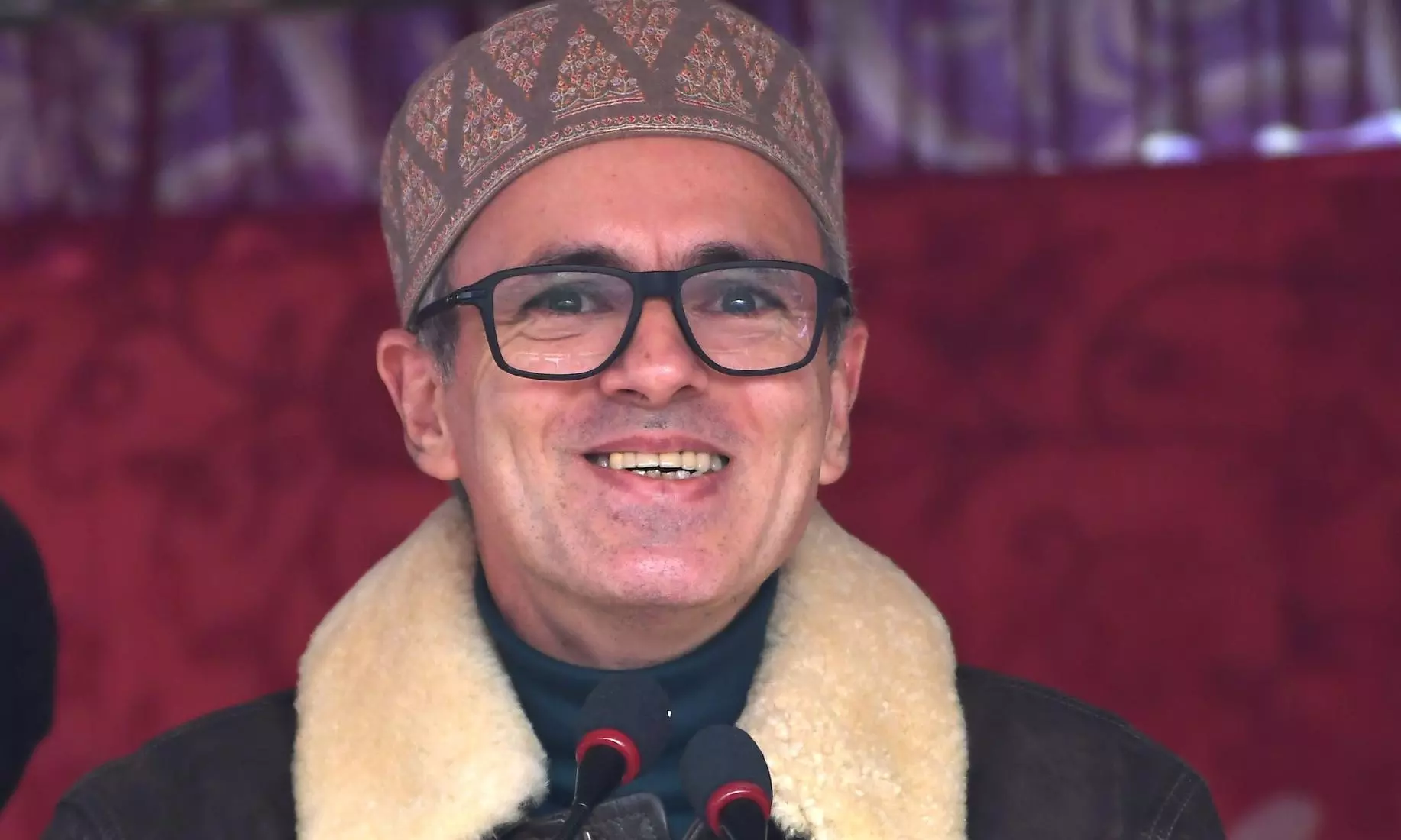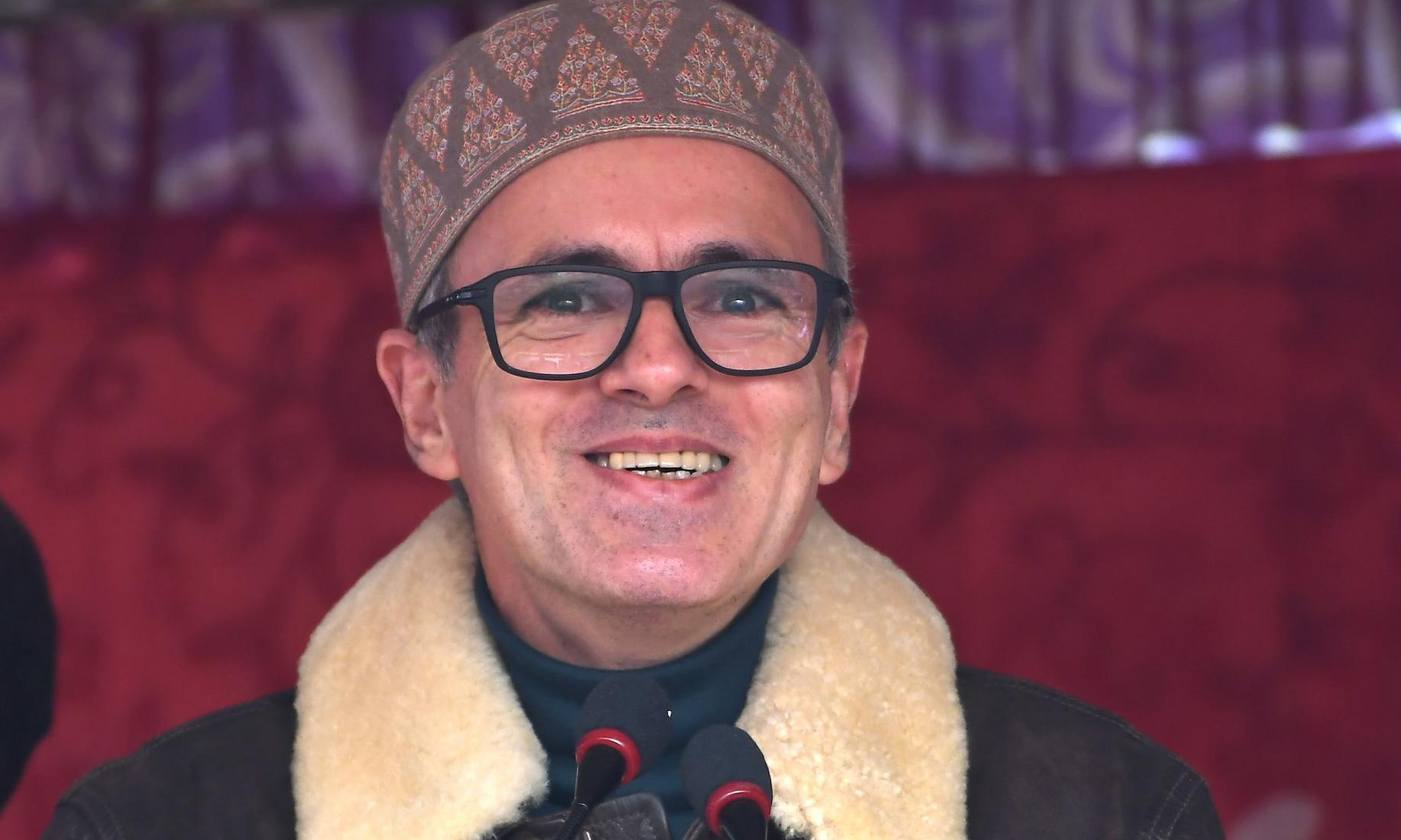
Srinagar: The Omar Abdullah government has come across the most embarrassing moment since its taking the charge in October as the official holidays on the birth anniversary of Kashmiri legendary leader Sheikh Muhammad Abdullah and the Kashmir Martyrs’ day fail to make a comeback which is repugnant to the ruling National Conference (NC)’s poll promise.
However, the NC has blamed the BJP for turning a blind eye to Jammu and Kashmir’s indigenous history which, it says, spurns more abuse on the people of the erstwhile state. On the other hand, the BJP has commended J&K Lieutenant Governor Manoj Sinha for putting his foot down and not accepting the NC’s “parochial demand”.
During the recently held Assembly elections, the NC had promised that if voted to power the party would restore the public holidays on July 15 (Kashmir martyrs’ day) and December 5 (the birth anniversary of its founder Sheikh Abdullah).
Former minister and NC general secretary Ali Muhammad Sagar had while strongly pitching for reinstating December 5 as a public holiday said that Sher-i-Kashmir (the ‘Lion of Kashmir’- as the Sheikh is known to his supporters and admirers) was a symbol of resilience “who fought tirelessly for the dignity, democratic rights, and social justice of the people” and that his “sacrifices ended despotism and paved the way for a prosperous future for J&K.”
But in spite of the NC’s entreaty and election promise to revisit the list of the holidays under the Negotiable Instruments Act, 1881, the official (holidays’) calendar for 2025 issued by the J&K General Administration Department on Sunday does not include December 5 or July 13. Many people on Monday took to social media platforms to ask if the NC has surrendered to the whims of the BJP government at the Centre and the Lieutenant Governor appointed by it. A few called chief minister Mr. Abdullah a ‘toothless tiger’.
However, NC chief spokesman Tanvir Sadiq squarely blamed the BJP for, once again, “insulting” the people of J&K. He said, “The decision reflects the BJP’s disregard for Kashmir’s history and democratic struggle. While we had hoped for the inclusion of holidays commemorating leaders like Sher-i-Kashmir Sheikh Muhammad Abdullah and the martyrs of July 13th, their absence does not diminish their significance or our legacy. These holidays will be restored one day.”
CPIM’s Mohammad Yousuf Tarigami accused the concerned authorities of attempting to erase pivotal milestones from J&K’s collective memory. He warned that such moves distort history and undermine the values these events represent. “July 13 holds immense historical importance as it commemorates the sacrifices of those who laid down their lives protesting against autocratic rule and advocating for human dignity,” he said. He added, “Sheikh Muhammad Abdullah’s birthday marks a day of great importance for J&K as he and his colleagues democratized society, implemented radical land reforms, introduced free education, and empowered women under the Naya (new) Kashmir manifesto.”
Following the abrogation of Article 370 and bifurcation of the erstwhile state of J&K in August 2019, the Lieutenant Governor-led administration had cancelled both these state holidays. The move, however, came under severe criticism by various regional political parties including the NC and People’s Democratic Party (PDP).
Particularly the government’s withdrawing July 13 as a state holiday to mark the ‘martyrs’ day’ came as a big disappointment to vast sections of Muslims of J&K. Many people termed it as an “onslaught” on their ethos and a “deliberate attempt” to “hurt” their sentiments. On July 13, 1931, as many as 22 Kashmiri Muslims were killed in firing by the Maharaja’s army outside Srinagar’s central prison where an in-camera trial of Abdul Qadeer Khan, a non-local chef with a British traveller accused of treason, was being held. July 13 is observed as ‘Martyrs’ Day’ on both sides of the Line of Control (LoC) since.
The Lt. Governor-led administration, however, declared October 26, the day J&K’s autocratic Maharaja Hari Singh signed the Instrument of Accession with the Indian Union in 1947, as an official holiday. Later while conceding the demand of various political and social organizations of the Jammu region, it also announced September 23 a state holiday to mark the birth anniversary of the last Dogra Maharaja.
Both these state holidays have been retained in the J&K’s official holidays’ calendar 2025 under the Negotiable Instruments Act, 1881. The NC leadership had denoted that the new government will not touch the holiday on the birth anniversary of Maharaja Hari Singh, apparently not to hurt the sentiments of the people of the Dogra heartland which sent as many as 29 members to the J&K assembly in the recently held Assembly elections. Politically too, it would be unwise on part of the NC government to fiddle with the matters the Jammuites are emotionally attached with.
The BJP has appreciated the decision of the government to maintain status quo in the list of public holidays to be observed during 2025. “The firm stand taken by the L-G and ignoring the parochial demand is really praiseworthy,” said party spokesperson Brigadier (retired) Anil Gupta. He asserted, “Both the holidays were mired in controversy and were thrust upon the people of the other two regions (Jammu and Ladakh) of the erstwhile state by the NC.”
He said, “Incidentally, December 5 was never a state holiday between 1948-1981 and was declared as a holiday to celebrate the birth anniversary of Sheikh Mohammed Abdullah after his death in 1982 by his son and successor Dr Farooq Abdullah”. He added, “Nothing can be more controversial and divisive than celebrating July 13 as a state holiday with full government support. While it was celebrated as Martyrs Day in Kashmir, it was celebrated as a Black Day by the Hindus in Jammu including the Kashmiri Pandits to protest against plundering of their properties in Kashmir by members of the majority community and also endangering their dignity, honour and lives”. He further stated, “Historically, the events of that day divided the people on regional, religious and ideological basis. The divide continues to persist and has widened further due to the monolithic attitude of Kashmir based regional political parties”.
